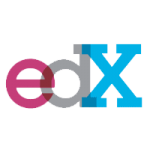Find tools for sharing course content with your students online. All tools recommended by the LT Hub have passed a UBCPrivacy Impact Assessmentand receive central technical and pedagogical support.
Course Content
These tools enable you to share text, video, audio, or images as part of your course content.
General Tips
- Break down bigger course content into clear and concise smaller units of information that are easier for students to absorb.
- 交换不同媒介以课程交付,以促进课程内容的参与和可访问性。
- Keep your course content accessible for everyone by followingaccessibility best practices(e.g., adding closed captioning and transcripts for video and being mindful of how you use colours, tables, and links).
- Use UBC’sLibrary Online Course Reserves (LOCR)to help you add articles, books, web links, and media resources to your course in a copyright-friendly way.
Cost for use:
None
带宽需求:
Low(a slow Internet connection should not impact basic access)
Requirements for FIPPA compliant use:
None
Canvas
Share and organize content in Canvas, UBC’s primary learning platform, to provide a clear course sequence for your students to follow.
What are the benefits?
- Since Canvas courses are automatically created each term, you can log in and immediately start filling your space with content-rich modules.
- You can organize modules by weeks, days, topics, or whatever makes the most sense for your course context.
- Each module can contain text, multimedia, files, discussions, assignments, quizzes, and other learning materials. Content can be dragged and dropped in the desired spot in your module sequence.
- You can hide modules until a specified date or set up prerequisites students need to complete in order to access the next module.
 边缘
边缘
Cost for use:
None
带宽需求:
Low(a slow Internet connection should not impact basic access)
Requirements for FIPPA compliant use:
Yes, for grading: Students receive anonymous IDs when they log in. To track and grade student activities, you will need tocontact usto help identify your students.
edX Edge
Post content on a version of edX (a platform for UBC Massive Open Online Courses) called Edge that is similar to but more limited in features than Canvas.
What are the benefits?
- 您可以在高度有组织的学习模块中呈现课程内容,该模块将文本和视频内容集成在一起比画布更无缝。
- There is a self-pacededX 101 online course you can taketo see if this approach may work better for you.
 创作
创作
Cost for use:
None
带宽需求:
高的(a slow Internet connection may impact access)
Requirements for FIPPA compliant use:
None
创作in Canvas
Upload video, audio, and image files (or have your students do so) in the “My Media” area of a Canvas course, and embed this multimedia wherever you need to.
What are the benefits?
- With Kaltura, you have unlimited file storage and can upload individual media files up to 5GB each.
- You can add in-video quizzes to engage students as they watch video lectures, which integrate with the Canvas gradebook as assignments, if you want to track student performance.
- 创作’s auto-captioning streamlines adding closed-captioning and video transcripts to your course, which improves accessible for students, with less time commitment for you.
 UBC Blogs
UBC Blogs
Cost for use:
None
带宽需求:
Low(a slow Internet connection should not impact basic access)
Requirements for FIPPA compliant use:
None
UBC Blogs
Host open course websites, where you and your students can create, share, and comment on content.
What are the benefits?
- UBC Blogs allows content to be posted publicly, meaning people outside the course can engage with it and students can continue accessing it after the course is over.
- Content from other UBC platforms can be embedded into UBC Blogs, such as media from CLAS, pages from Wiki, or videos from UBC YouTube.
- You can provide direct access to UBC Blogs in Canvas through your course’s navigation or as part of a module, if you want to use both tools together.
 哥伦比亚大学维基百科
哥伦比亚大学维基百科
Cost for use:
None
带宽需求:
Low(a slow Internet connection should not impact basic access)
Requirements for FIPPA compliant use:
None
哥伦比亚大学维基百科
Create, manage, and share content in a collaborative space that is editable by anyone with a UBC Campus-Wide Login (CWL).
What are the benefits?
- Enable collaboration on course content for your students, without having to do much setup yourself (like creating a site on UBC Blogs or setting up Canvas groups).
- Having students learn the markup language used in UBC Wiki provides an additional real-world skill, as this language is also used for other wiki platforms like Wikipedia.

 边缘
边缘

